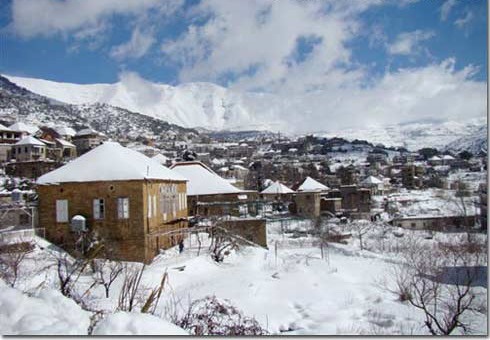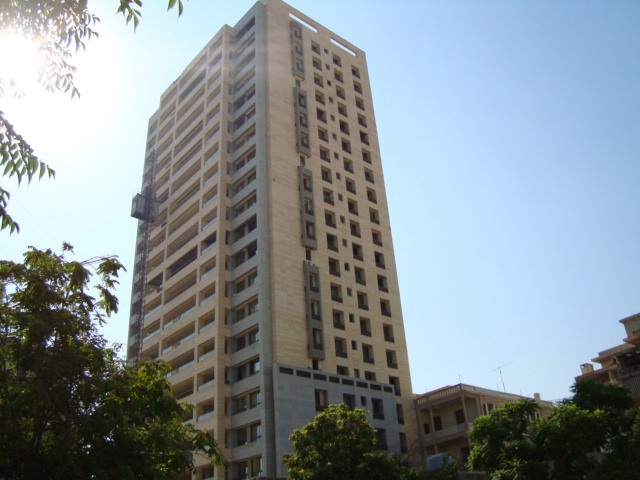Lebanon Properties Facing up to Global Crisis - Feb. 2010
female viagra for sale
female viagra uk
knagis.miga.lv female viagra over the counter
buy lyrica online india
order lyrica from canada
click buy lyrica canada
 Real estate prices have experienced a sharp decline globally, while Lebanon has enjoyed increased values in properties within the same period.
Real estate prices have experienced a sharp decline globally, while Lebanon has enjoyed increased values in properties within the same period.
Lebanon witnessed the launch of several mega-construction projects in 2009 worth $1.9 Billion despite the global economic crisis. A detailed review at the property sector’s activity in 2009 shows that during the first quarter of the year the sector stood firm in the face of the global crisis, with its indicators registering positive year-on-year variations.
Official figures indicate that the total value of property sales in Lebanon was at LL1.875.2 trillion in December 2009, jumping by 40.8 percent when compared to the value registered in the same month of the previous year and reaching its highest level in 2009. ($4.219 Billion and $3.151 Billion in 2007 & 2006 respectively). Cement deliveries, a coincident indicator of construction activities, increased 20.5% in 2009 as compared to the same period of 2008 and by 27.0% relative to the same period of 2007 to reach 4,190,767 tons.
The number of property-sale transactions rose by 2.3 percent to reach 83,622 transactions, a yearly peak for Lebanon. Of particular importance is the surge of 17.6 percent in sales transactions to foreigners, which also soared high in 2009, despite the difficult economic conditions, which negatively affected the purchasing power of foreign investors who consider the country a regional development centre due to its strategic geographic location; free market economy; project-friendly regulatory environment; moderate tax rates; expanding infrastructure; and highly skilled human capital.
In an overview of the real estate market performance in the last decade (1999-2009), Local economic & political disruptive events took place in the form of repeated wars, assassinations, explosions, Nahr El Bared. Add to these detrimental influences, the Global Financial Crisis, political stagnation and corruption accompanied by no major positive economical indications from most sectors of the national economy except the banking sector.
Despite all the negative events and against all odds and expectations, the real estate market and property prices have continued on the uptrend and never stopped increasing.
The question must be asked; in 2010 are we still on the safe side?
In 2009, Lebanon witnessed a 6% increase in construction permits to reach more than 11.42 million square meters of granted projects.
Price per square meter during the first half of the year rose a phenomenal 50%.
 Price increases in Beirut properties reached multiple digits per year for the past 4 years, land prices exceeded most optimistic expectations by far, and prices of land in Achrafieh, Saifi, Gemmayzeh, Ras Beirut, Verdan and Ain Al Mreiseh increased nearly 45% per year. While price ranges for residential units reached $4000 up to $12,000 /m2 marking an average increase of nearly 35%. Will this continue in 2010?
Price increases in Beirut properties reached multiple digits per year for the past 4 years, land prices exceeded most optimistic expectations by far, and prices of land in Achrafieh, Saifi, Gemmayzeh, Ras Beirut, Verdan and Ain Al Mreiseh increased nearly 45% per year. While price ranges for residential units reached $4000 up to $12,000 /m2 marking an average increase of nearly 35%. Will this continue in 2010?
The decline in bank interest rates encouraged investors to inject liquidity in the real estate sector; local banks reached almost $90 Billion of liquidity. This encouraged investors to apply for credit to purchase properties expecting the rise in the price will cover all their obligations to the banks and a substantial R.O.I not less than 25-30% in worst cases.
Developer's pursuit to secure land plots in Beirut has not stopped for the past 2 years, investors have been eager to buy even shares in some properties. Properties that have legal issues were also subject to high demand. The situation is also repeated in the suburbs, Mount Lebanon and touristic resorts.
What is next? Are we expecting a decline in property prices? Can the market continue with this trend into the near or medium term?
The value of property sales reached a yearly peak of LL10.576.2 trillion in 2009, up 8.3 percent compared to 2008. And the increase in the value of property-sale transactions within the context of a lower rise in the number of such transactions has resulted in a rise in the average property-sale value in 2009 of 5.8 percent to reach LL126.5 million. It is worth noting that Lebanon recorded over $4.3 billion in real-estate transactions in 2008 and brokers noted that the bulk of the buyers were Lebanese expatriates in the oil-rich Gulf States.
The first half of 2010 will be flooded with ongoing construction projects; units will be available for the local and overseas markets at high prices following the current trend. Lebanese expatriates are expected to consume up to 50% of the available units, while other nationalities are expected to purchase up to 20% of the balance. The market will continue to deliver new units in the second half at a lower pace, but the buyer purchasing power is expected to decline gradually due to the current economic conditions in the Gulf countries and its direct financial effect on the Lebanese and Gulf citizens.
.jpg) Beirut has a first-class record in property development, In order to avoid any real estate crisis, the government should provide actual statistical figures related to this sector, the figures should include statistical data from the real estate directorate and concerned ministries (finance, justice and public works), while tightening measures should be adopted by real estate developers and promoters to comply with actual market demand, new incentives and lower profit margins.
Beirut has a first-class record in property development, In order to avoid any real estate crisis, the government should provide actual statistical figures related to this sector, the figures should include statistical data from the real estate directorate and concerned ministries (finance, justice and public works), while tightening measures should be adopted by real estate developers and promoters to comply with actual market demand, new incentives and lower profit margins.
The real estate market represent a major portion of the national economy of Lebanon, any major crisis or sharp decline in prices will have a direct effect on the national economy. In order to avoid the possibility of such a crisis officials are urged to coordinate with real estate professionals and implement a long term plan for monitoring and data processing of real estate figures to provide comprehensive leadership for all parties involved.
Abdallah Hayek P.E
CEO
Hayek Group s.a.r.l
Beirut – Feb. 2010
Back To Newsletters